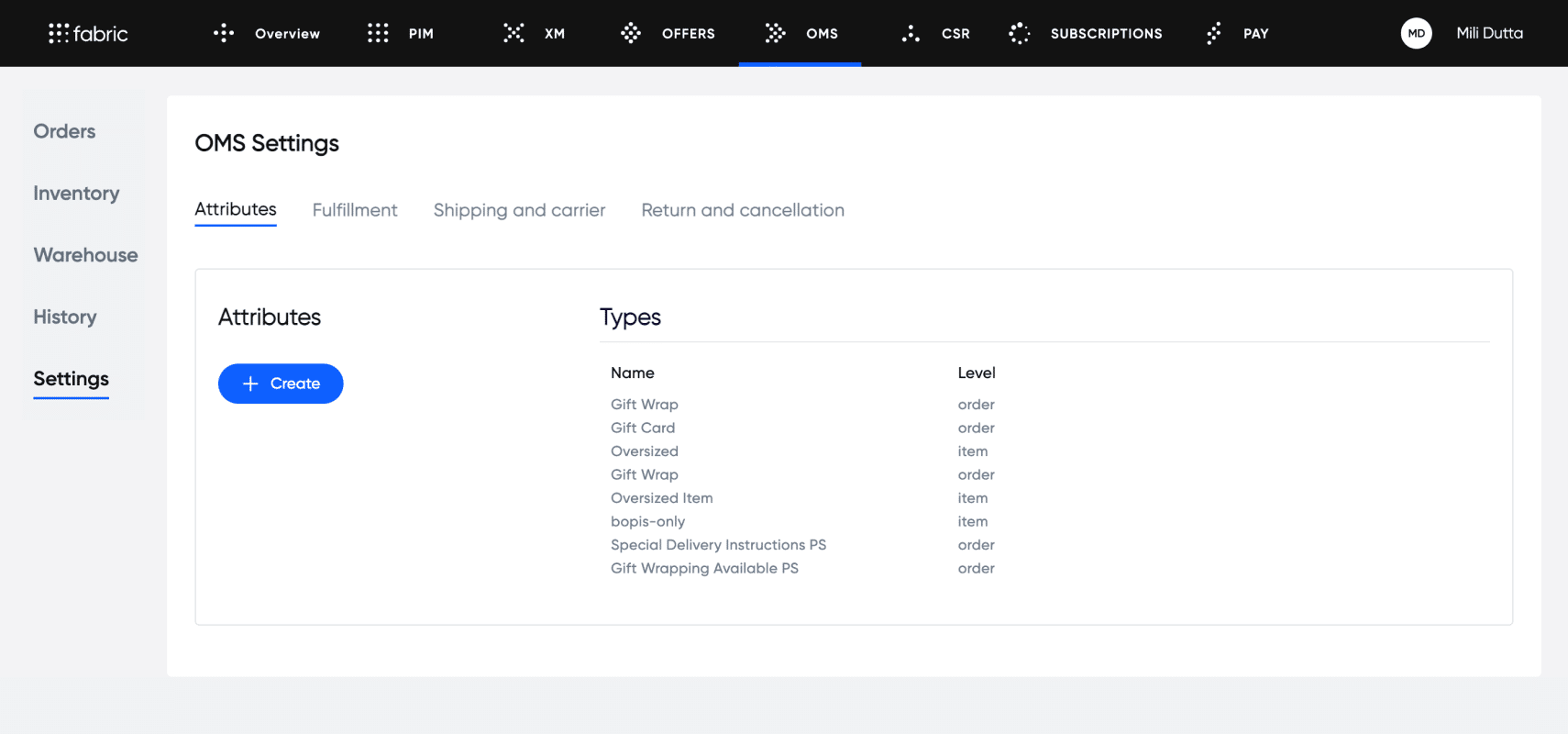April 2022: Product Releases
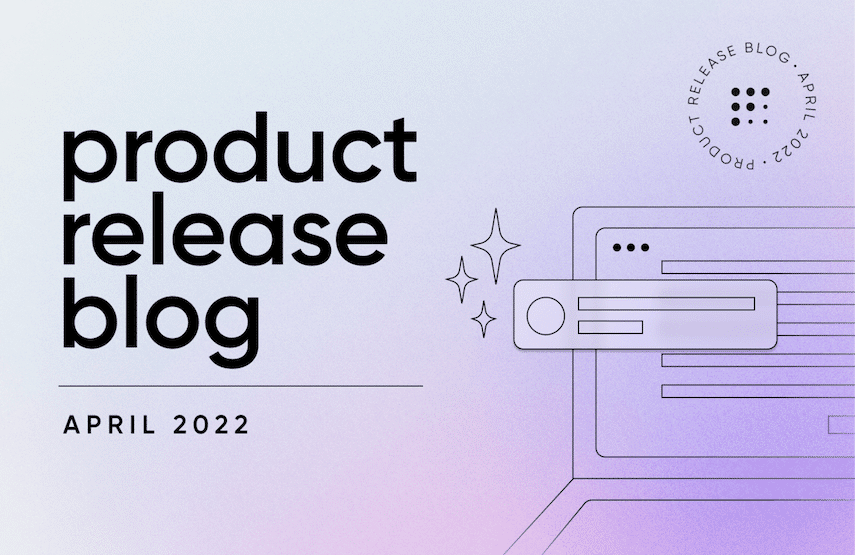
fabric’s monthly Product Release Blog highlights some of the recent product releases and enhancements we’ve made so you can stay up to date on what’s new. This April edition covers monthly updates for the following products:
[toc-embed headline=”Order Management System (OMS)”]
Order Management System (OMS)
In the world of omnichannel commerce, customer experience starts with the pre-purchase shopping experience and extends into post-purchase fulfillment handling. As a retailer, you are constantly trying to increase fulfillment rates, reduce fulfillment costs, and improve inventory availability. We are constantly working to provide you with the tools to scale order management, inventory availability, and order fulfillment:
- Configure return and cancellation policies
- Share packing and handling instructions with operators
- Create custom inventory positions
- Create and manage source locations
- Improve availability of new products
- Create shipping SLAs
- Import orders and inventory in bulk
Configure return and cancellation policies
This feature in the fabric OMS allows users to create policies for customers who want to return orders they’ve received or cancel orders before they ship. These policies can be configured based on order status and even set up to trigger automatic refunds. Also, the returns and cancellations policies can be configured under the Settings menu as a validation step whenever a customer requests a return or cancellation. A related update allows you to use the filter feature on the Orders menu to sort orders by returns and cancellations.
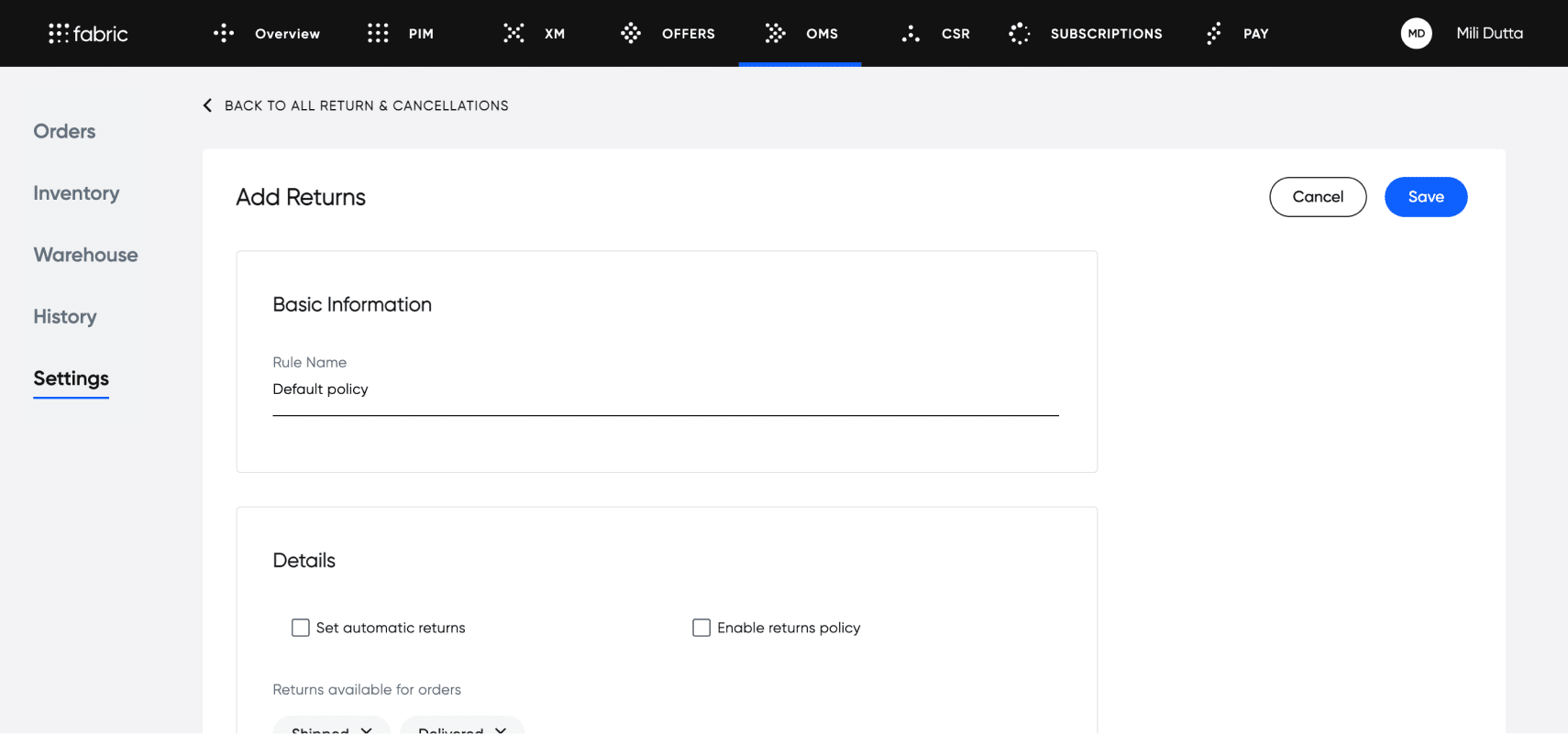
Share packing and handling instructions with operators
Custom attributes now appear along with a customer’s order on the Order Detail page to help brands serve their customers better. For example, if a customer chooses gift wrapping as a part of their order, that addition will be shown on the Order Details page for more efficient order management.
Create custom inventory positions
Inventory positions in the OMS UI are no longer limited to “Available” and “In transit”. The user can create custom positions such as “Available”, “Shipped”, or “Reserved” using Inventory APIs, which dynamically update the categorization in Copilot.
Create and manage source locations
The “Warehouse” module in the OMS submenu is now replaced by “Locations”. This helps us expand the module’s definition to include custom locations that can be used downstream to manage inventory and fulfillment. Users are no longer constrained by the standard location attribute set and create their own locations.
Improve availability of new products
With the latest AWS EventBridge backend changes, creating a new product in PIM now automatically triggers the creation of a new product in OMS. The event is detected by our handler on the Copilot business layer, allowing us to take the SKU, itemID, and title and import the information via the inventory service.
Create shipping SLAs
You can now create Service-Level Agreements (SLAs) that promise delivery windows to the customer in the Settings menu of OMS with the new Fulfillment, Shipment, and Delayed Orders SLA rules.
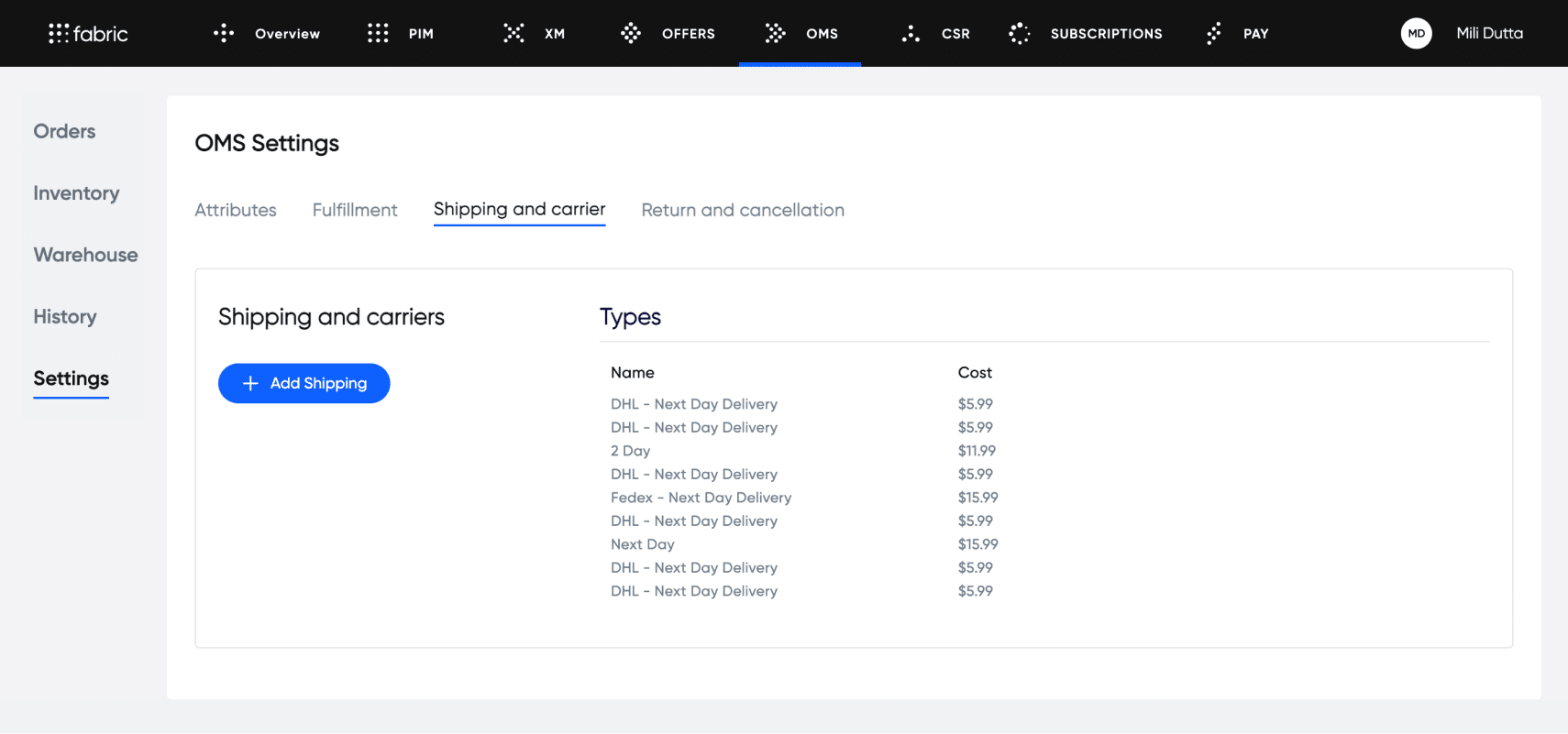
Import orders and inventory in bulk
The Orders and Inventory menus now feature a Bulk Upload option to add multiple items from a CSV file. If there are errors in the file you upload, OMS will highlight the errors in the file and allow you to download it so that you can make corrections.
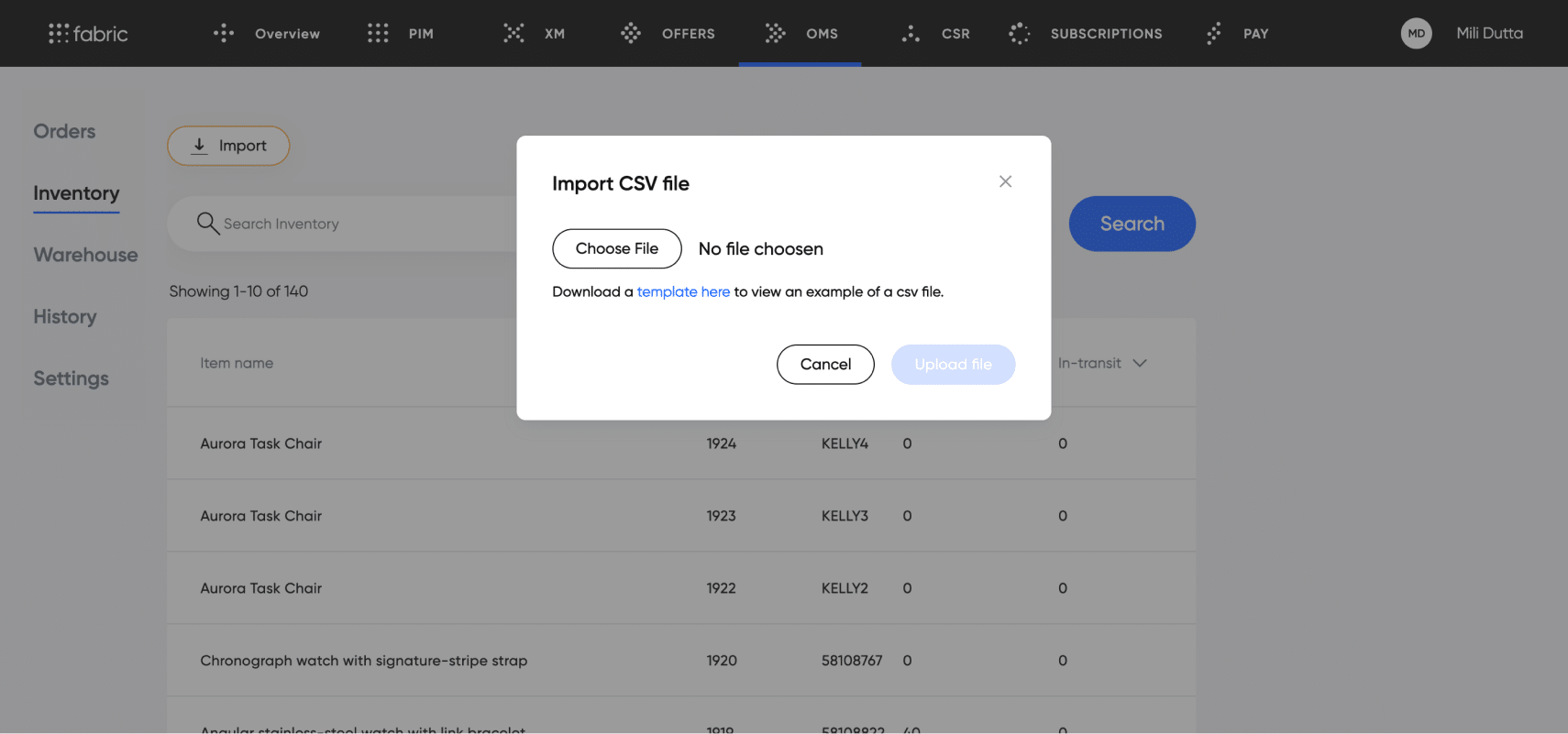
[toc-embed headline=”Offers”]
Offers
If you’re a merchandiser, developer, or your company’s head of digital, you understand the pains of managing your pricing strategies with spreadsheets and outdated tech. You’re not alone. With fabric Offers, we provide you the tools to create and manage highly configurable pricing and promotion strategies efficiently and reliably. Last quarter, the fabric Offers team released the following updates to improve the business user and developer experience:
Execute complex pricing strategies with formula-based pricing
fabric Offers has dynamic pricing APIs that support complex pricing strategies and ensure prices are accurate across multiple channels and served in real-time. With the introduction of formula-based pricing (one of many components in fabric’s Dynamic Pricing Engine), merchants can configure mathematical pricing rules that ingest product details and other configurable inputs. Formula-based pricing is particularly beneficial for products that are customized before purchasing (such as custom-sized rugs or furniture) or made-to-order products, but the possibilities are numerous.
Discount on clearance prices
We added a new configuration for clearance price discounting. You can now configure whether SKUs with a clearance price can be discounted further with additional promotions and coupons. This functionality is optional for merchants who wish to make exclusions to clearance price rules. In short, this means greater configurabilty to handle your commerce use case.
Global SKU exclusions
fabric Offers allows merchants to discount prices through promotions and coupons. Merchants can easily exclude items when creating new discounts; however, this can be difficult and time-consuming to manage when a product needs to be excluded from all promotions and coupons. With global SKU exclusions, you can easily exclude products from all promotions and coupons. This may come in handy in a number of situations, including:
- When a brand may not allow discounting
- When a category may have shallow margins
- When a product may be seasonal and does not require discounting
- There are legal or business constraints when discounting items like stamps, gift cards, etc.
[toc-embed headline=”Product Information Management (PIM)”]
Product Information Management (PIM)
If you’re a Category Manager or Merchandiser, you know the pains of managing product information for your digital store. With fabric PIM, we provide you the tools to easily create and manage product categories and take bulk actions to save time. We are continuously adding feature enhancements to make it easy for you to manage products at scale:
Organize product attributes
Attribute groups: This release introduced Attribute Groups under the Settings UI. Attribute Group enables users to create collections of attributes. Use cases include grouping the attributes based on owners of item data along the value chain (e.g., manufacturing, marketing, etc.), grouping the attributes based on business workflows, and merchandising requirements.
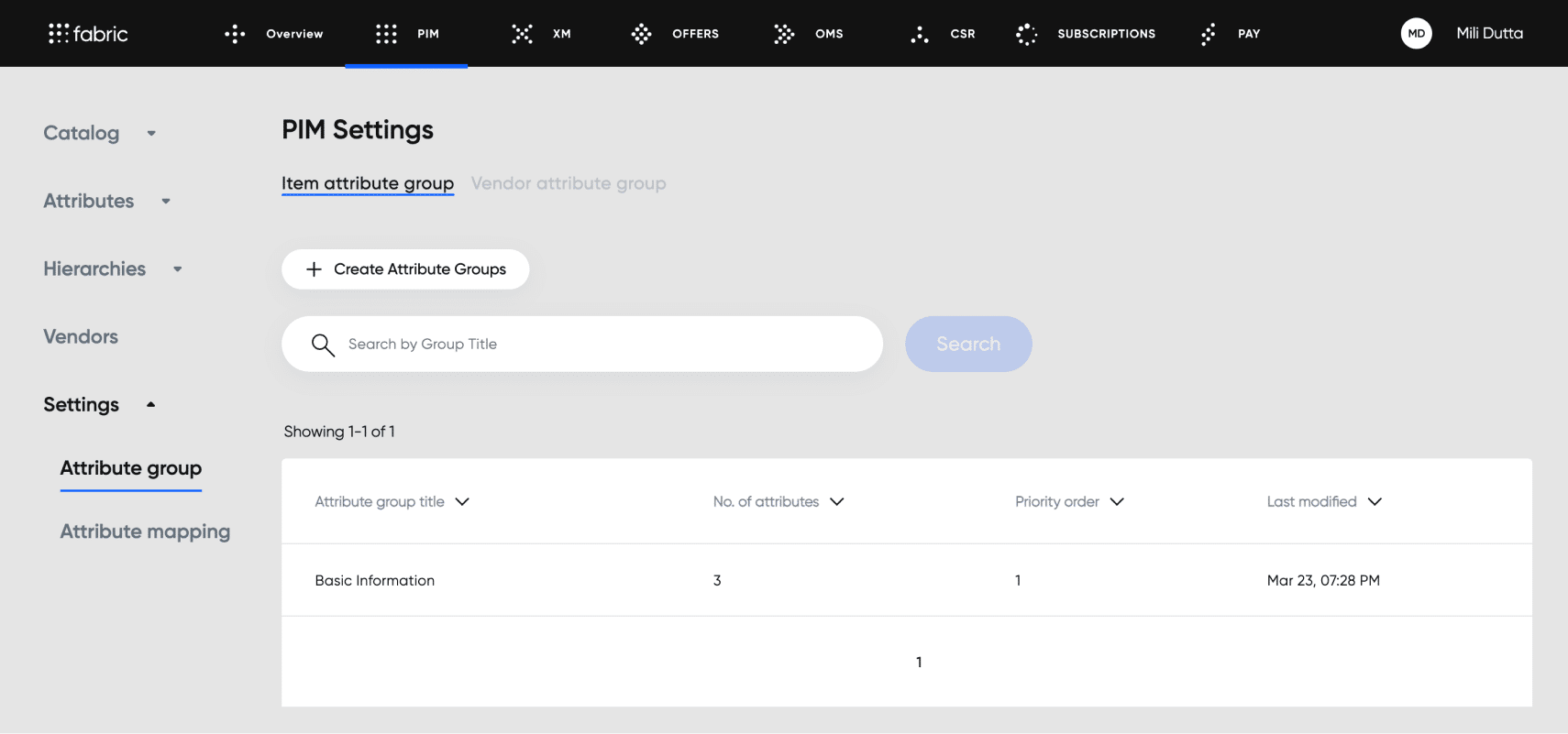
PIM users can now use the Attribute Groups to organize their view on the Catalog Items and Catalog Bundles page by grouping the long list of attributes into logical groups. Multi-select from list of values (LOV) attribute: Merchants can now select Single or Multiple attributes from the Item Attribute page. As a result, this allows your customers to choose from a list of options on the Product Detail Page. Use cases include selecting from a list of colors, sizes, delivery times, and more.
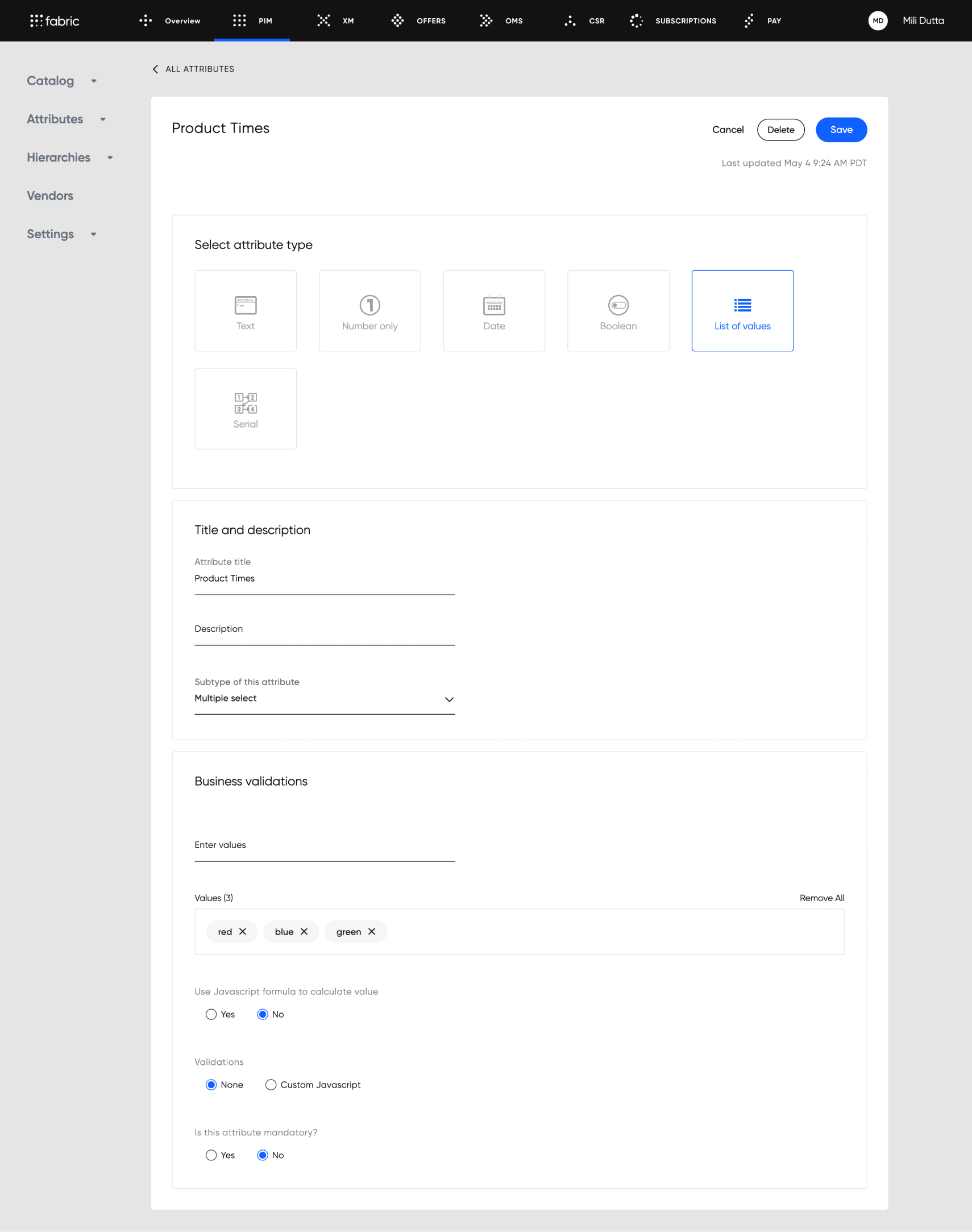
Control product hierarchy and attributes through APIs
PIM now enables an end-to-end experience only using APIs. PIM users no longer depend on the Copilot UI to manage hierarchies and attributes. Learn more from API documentation. These APIs provide the following functionality:
- Create and manage Primary Hierarchy
- Create and manage Alternate Hierarchies
- Create and manage Attributes
- Equipped with security using an API Key for all writer operations
Standard category API to delete hierarchy nodes: PIM API users can now delete Category nodes from Primary and Alternate Hierarchies. Learn more from API documentation.
[toc-embed headline=”Commerce APIs”]
Commerce APIs
fabric’s suite of composable commerce APIs is the building block for modern commerce, providing developers complete flexibility to support their unique business model, experiences, and service offerings. Leveraging an API-first, microservices-based commerce architecture lets you craft your unique brand experiences faster and with greater flexibility than ever before. We are continuously releasing over-the-air updates and launching new capabilities to our suite of best-in-class APIs. Some of the noteworthy features we’ve recently launched include:
Updated Cart APIs
With the latest updates to our next-gen Cart and Checkout APIs, we’ve focused on better performance, scalability, multi-tenancy, and configurability. Now, fabric’s Cart APIs support even more advanced capabilities, such as:
- Enabling multiple carts within a B2B organization
- Sharing a cart across multiple users
- Integration with our Dynamic Pricing Engine

Product marketing @ fabric. Previously @ Accenture and Infosys.
